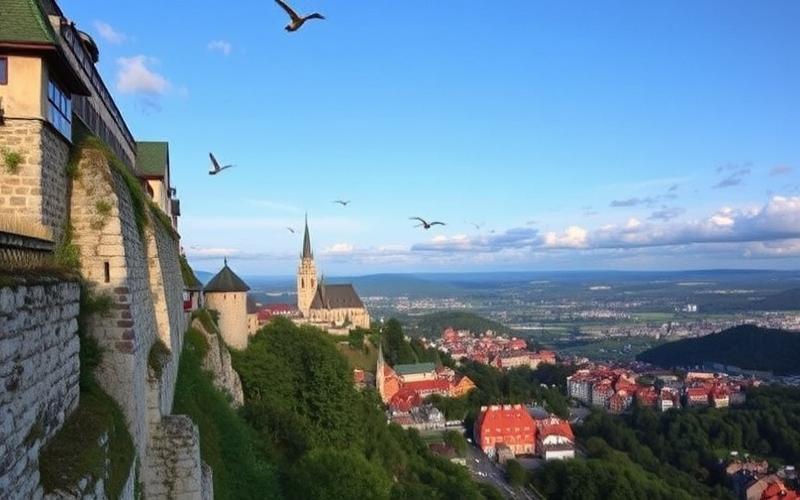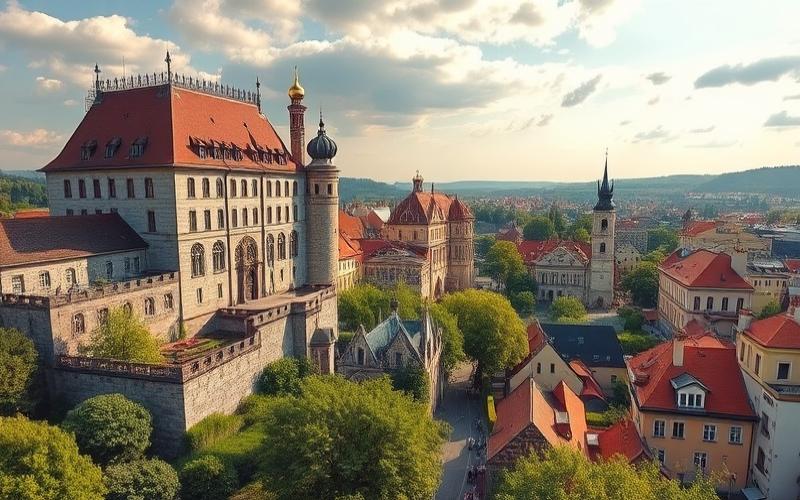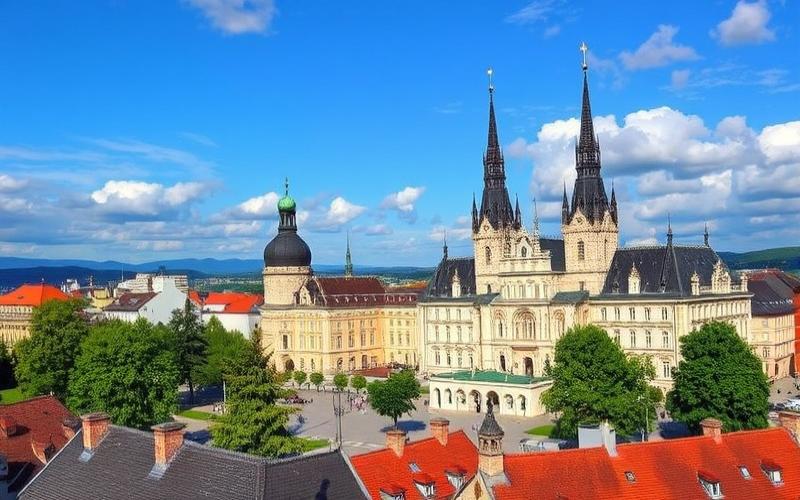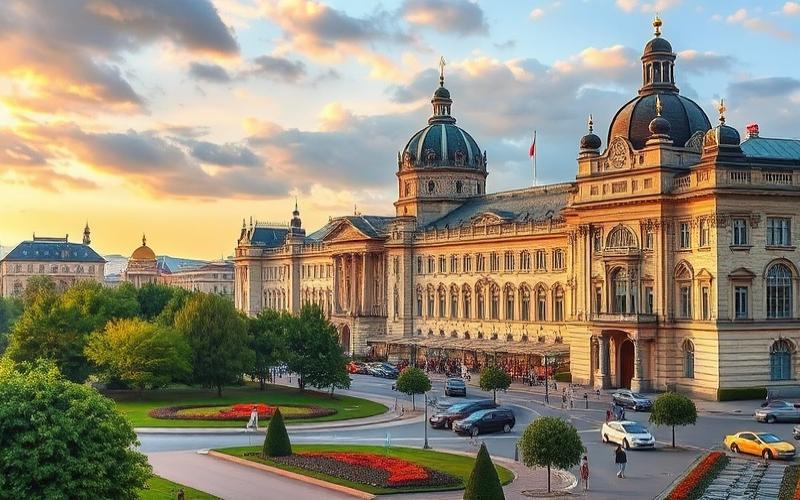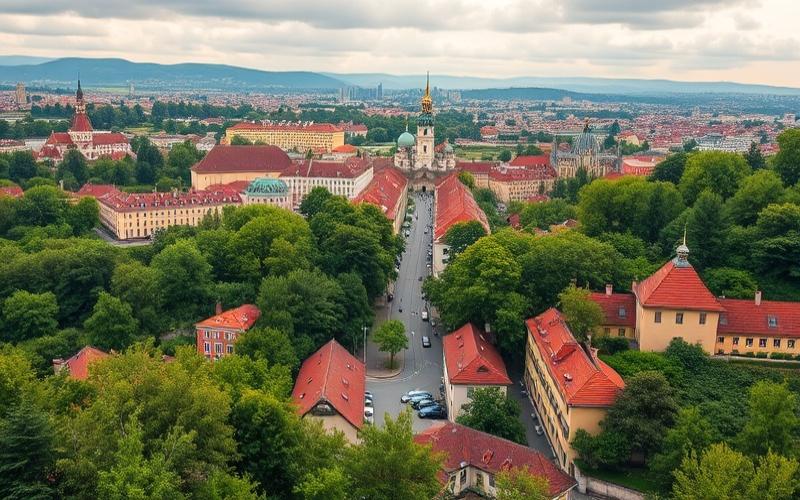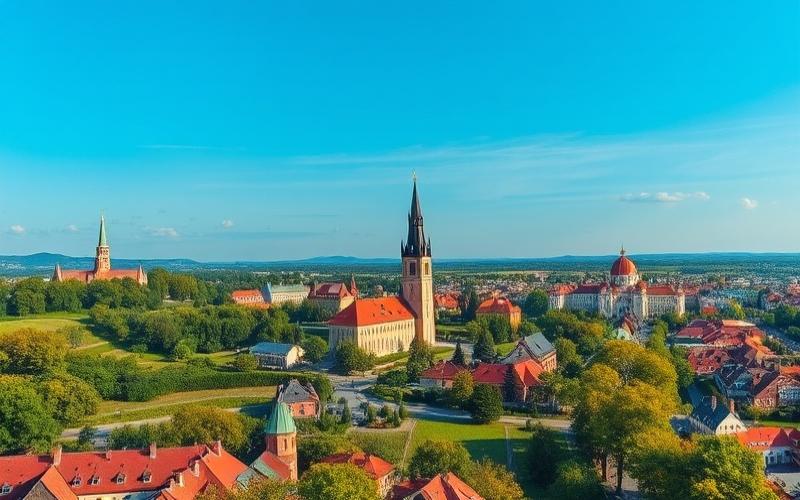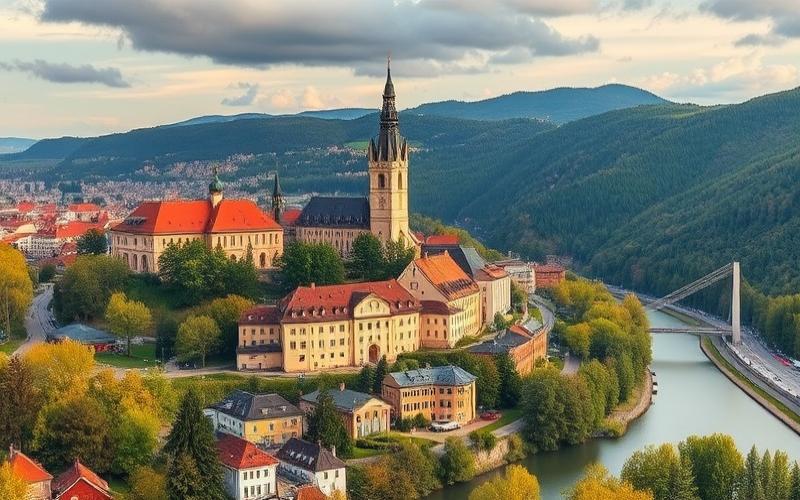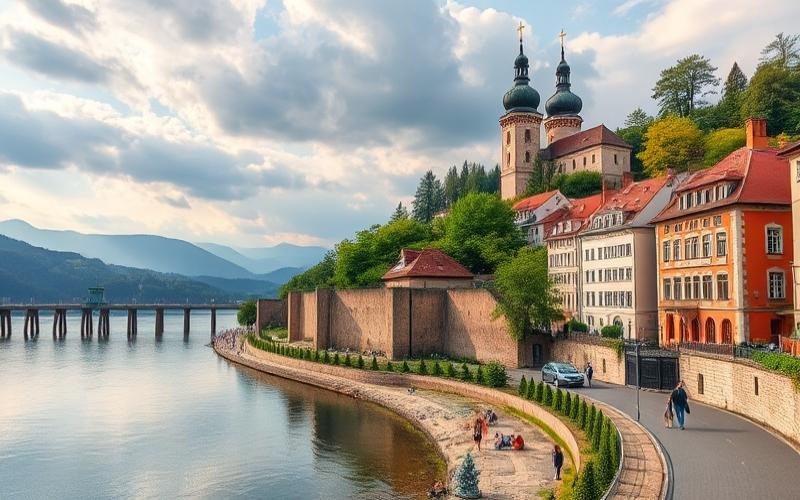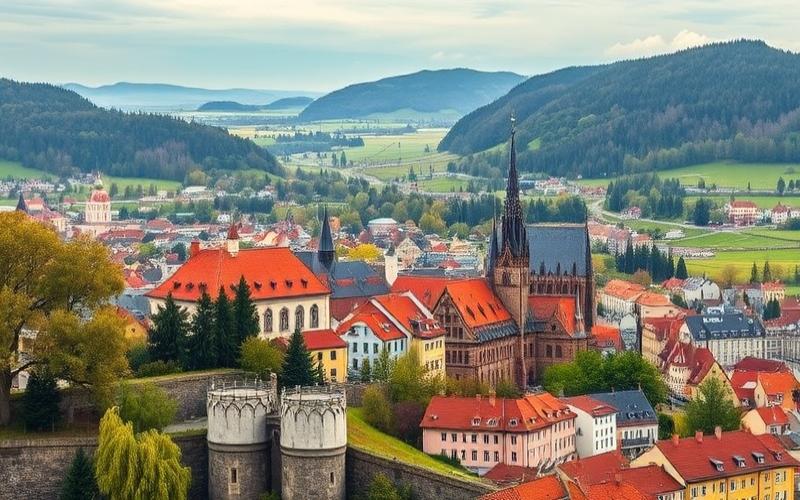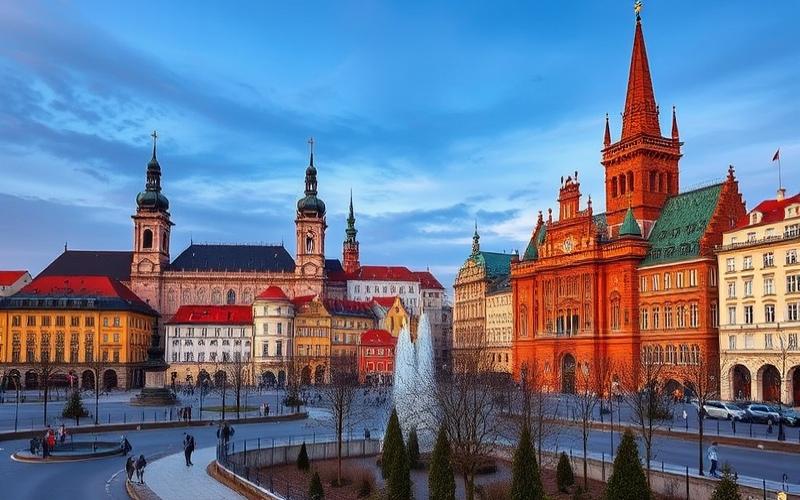
 Published on and written by Cyril Jarnias
Published on and written by Cyril Jarnias
Relocating to Poland represents a valuable opportunity for expatriates seeking to expand their professional horizons, but navigating a foreign job market can prove complex.
However, by adopting effective strategies to expand and nurture your local professional network in Poland, it’s possible to overcome cultural and linguistic barriers and transform this experience into a major career asset.
From joining local professional communities to participating in sector-specific networking events, this article explores multiple avenues to build a strong contact network – a key element for anyone seeking to optimize their integration and excel in the Polish market.
Identifying Professional Events in Poland
Major trade shows, conferences, and economic forums in Poland represent significant networking opportunities. Here’s an overview of events, dominant sectors, information platforms, and practical tips to optimize your participation.
| Event / Trade Show | Sector / Industry | City / Location | Frequency |
|---|---|---|---|
| Future Private Labels Expo | Distribution / Retail | Kielce | Annual |
| Hotel Equipment Expo | Hospitality / Tourism | Warsaw (Ptak Warsaw Expo) | Annual |
| Smart City Expo Poland | Urban Technologies | Warsaw (EXPO XXI) | Annual |
| Warsaw Home & Contract | Interior Design | Warsaw (Ptak Warsaw Expo) | Annual |
| Book Fair in Krakow | Publishing / Media | Krakow (Expo Krakow) | Annual |
| Polish Franchise Expo | Franchise / Commerce | Warsaw (Palace of Culture) | Bi-annual |
| Poznań Game Arena | Video Games / Digital | Poznań (Congress Center) | Annual |
| CEDE / Dentamed | Dental / Healthcare | Lodz / Wroclaw | Annual |
| ENOEXPO | Wine / Food Industry | Krakow (Expo Krakow) | Annual |
| HORECA Krakow | Hospitality / Catering | Krakow (Expo Krakow) | Annual |
| FORESTECH / SOLIDS / SUSTAINABILITY Expo | Industry / Wood / Sustainable Development | Warsaw (Ptak Warsaw Expo) | Annual |
Dominant and Dynamic Sectors
- Industry and subcontracting (machinery, materials, automation)
- Food and beverage (specialized trade shows, ENOEXPO)
- Digital technologies, video games, IT
- Hospitality, catering, tourism
- Design, textiles, furniture, lighting
- Franchise, distribution, retail
- Healthcare, dental, wellness
Local Platforms and Communities to Follow Event Updates
- Eventseye, FoiresInfo: comprehensive calendars of trade shows and exhibitions in Poland.
- Expostandservice: schedules and updates on European trade shows.
- Local LinkedIn groups (e.g., “Polish Business Network”), Meetup Warsaw/Krakow for more informal events.
- Major exhibition center websites: Ptak Warsaw Expo, Expo Krakow, AmberExpo Gdansk.
- Chamber of Commerce pages (French-Polish, German-Polish, American, etc.) that regularly publish event calendars.
Role of Chambers of Commerce and Entrepreneur Circles
- Organization of sector-specific meetings, workshops, business breakfasts, economic missions.
- Facilitation of access to local and international networks through their knowledge of the economic landscape and contact directories.
- Logistical support and guidance for foreign companies looking to establish operations or find partners in Poland.
- Business clubs and professional associations (sector-specific or local) also play a central role in animating the entrepreneurial community.
Practical Tips for Effective Integration and Participation
- Prepare in advance: target events relevant to your sector, register early, define clear networking objectives.
- Polish your presentation: have materials in English and/or Polish (business cards, pitch, brochures).
- Participate actively: attend conferences, workshops, and networking sessions; ask questions and contribute to discussions.
- Use digital platforms: join event groups on LinkedIn, follow relevant hashtags on X/Twitter, check trade show mobile apps.
- Maintain contacts: follow up with people met after the event, propose follow-up exchanges (video calls, lunches, etc.).
- Open up to local culture: learn about Polish professional codes, punctuality, communication style.
Maximizing professional development opportunities in Poland requires active monitoring, targeted preparation, and concrete involvement during the country’s key events.
Good to Know:
Joining platforms like Eventbrite or Meetup allows you to follow events in key sectors such as tech and automotive, while Chambers of Commerce offer excellent networking opportunities with local entrepreneurs. To optimize your participation, prepare business cards and familiarize yourself with Polish cultural norms of politeness to make a good impression.
Joining Local and International Professional Associations
Joining local and international professional associations in Poland offers expatriates numerous advantages for their career and integration.
Main Benefits:
- Facilitated Networking: These associations enable meeting other professionals, accessing key contacts, finding partners, clients, or investors.
- Exchange of Ideas and Practices: They organize workshops, training sessions, conferences where members share experiences, challenges, and solutions, enriching skills and opening new perspectives.
- Integration Support: They offer resources to better understand the local market, legislation, taxation, and facilitate adaptation to Polish professional practices.
- Help with Cultural Barriers: Francophone or international platforms assist expatriates in discovering local social and professional codes, reducing isolation and misunderstandings.
Examples of Influential Associations in Poland:
| Association | Type | Main Assets |
|---|---|---|
| French-Polish Chamber of Commerce | Bilateral | Networking, lobbying, professional events |
| Francophone Entrepreneurship Network (RFE) | Francophone | Networking, workshops, mutual support, expert advice |
| Polish Employers’ Chamber (IPP) | National | Legal information, cross-border support, lobbying |
| V.I.E Club Poland | Young Professionals | Afterworks, networking, humanitarian actions, sector exchanges |
| Varsovie Accueil | Francophone | Welcome services, information, community animation |
| Union of French Abroad (UFE) | International | Support, global network, integration resources |
Represented Sectors:
- Industry, services, international trade, francophone entrepreneurship, volunteering, sector-specific associations (e.g., tech, HR, consulting).
Steps to Join an Association:
- Identify the association suitable for your sector or language (francophone, international, Polish).
- Fill out an online membership form or contact the local office directly.
- Pay the annual membership fee (amount varies by association).
- Participate in a welcome session or integration meeting.
- Access member-only resources: directories, private groups, events, workshops.
Resources for New Members:
- Access to professional directories and private groups (LinkedIn, Facebook).
- Participation in networking events, thematic workshops, training sessions.
- Legal and tax advice.
- Publications and specialized newsletters.
- Mentoring and professional development opportunities.
Impact on Career Development and Integration:
- Accelerated professional integration in a foreign environment.
- Privileged access to job, partnership, and market opportunities.
- Strengthened intercultural and sector-specific skills.
- Increased visibility in the local and international community.
- Support during administrative or legal procedures.
Professional associations constitute a major lever for successful expatriation in Poland, both professionally and personally.
Good to Know:
Joining associations like the French-Polish Chamber of Commerce in Poland facilitates networking and cultural integration through regular events, while local sector platforms offer resources and programs to overcome professional barriers; join via their website and access mentoring and workshops.
Understanding and respecting Polish business etiquette is essential for establishing lasting business relationships and gaining the trust of local partners. An adapted approach promotes expatriate success, their integration, and the growth of their network.
Specific Cultural and Professional Norms:
- Punctuality: Being on time is a sign of respect and seriousness. Lateness is poorly perceived and can damage credibility.
- Greetings: A firm handshake accompanied by eye contact is the norm. Using professional or honorific titles (Mr., Mrs., Doctor, Engineer) during introductions followed by the last name is common.
- Dress Code: A formal and neat style is recommended for initial meetings.
Conducting Business Meetings:
- Meetings are generally structured and start at the scheduled time.
- Preparation is crucial: know the topics to discuss, bring necessary documents, and research your counterparts.
- Active and concise participation is appreciated. Avoid monopolizing the conversation.
- A summary or follow-up message after the meeting shows seriousness and commitment.
Communication Styles:
- Poles value clarity, precision, and respect in exchanges.
- Professionalism is expressed through politeness, listening, and diplomacy. Criticism is formulated tactfully.
- Direct discussions are accepted, but frontal confrontation should be avoided.
Tips for Effective Integration:
- Participating in informal events (lunches, coffees, afterworks) helps build trust and expand your network.
- Showing interest in local culture and traditions is viewed positively.
- Humility and willingness to learn facilitate group acceptance.
Anecdotes and Expatriate Feedback:
- A French expatriate reported that an invitation for coffee by a Polish colleague accelerated their integration and provided valuable advice about internal company codes.
- Others mention the importance of respecting hierarchy and consulting managers during important decisions, which strengthened their credibility.
Common Mistakes to Avoid and Best Practices:
- Avoid jokes or comments about politics or national history during initial exchanges.
- Don’t ignore titles or hierarchy during introductions.
- Adopt a respectful and open attitude toward cultural differences.
- Always thank for help or information received.
| Practices to Adopt | Mistakes to Avoid |
|---|---|
| Strict punctuality | Repeated lateness |
| Using titles | Overly familiar greetings |
| Thorough preparation | Arriving without an agenda |
| Follow-up after meetings | Lack of thanks |
A good understanding of Polish business etiquette paves the way for expatriate success, promotes the creation of strong connections, and contributes to the sustainability of their professional network.
Good to Know:
Respecting punctuality and using academic titles during introductions are essential in Poland, as is diplomatic communication to strengthen professional bonds. Participating in informal meetings can significantly contribute to networking, thus avoiding mistakes like unintentional impoliteness during interactions.
Strategies for Building Sustainable Business Relationships
Understanding Polish business culture is a fundamental lever for establishing lasting and fruitful professional relationships. An intercultural approach helps build trust, avoid misunderstandings, and effectively integrate into the local economic landscape.
- Learn a few Polish phrases: Using simple greetings or expressions during initial exchanges breaks the ice, demonstrates respect for local culture, and fosters a cooperative climate.
- Respect for hierarchy and etiquette: Polish organizations value hierarchical structure. It’s essential to address decision-makers first and not bypass the chain of command.
- Punctuality and preparation: Arriving on time and well-prepared to every meeting shows professionalism and respect. Agendas are structured, objectives precise, and improvisation is poorly perceived.
- Regular and personalized follow-up: After a meeting, sending a thank-you message or organizing personalized follow-up helps maintain the relationship and anchor trust over time.
- Flexibility and adaptation: Norms can vary between companies. Knowing how to adjust behavior and expectations according to context is essential.
- Networking and local events: Participating in trade shows, conferences, and professional events promotes connection building, helps better understand the market, and identifies the right contacts.
- Transparency and trust: Reliability, honesty, and clarity are valued. Poles prioritize trust-based relationships built on consistency between words and actions.
- Participation in cultural activities: Accepting invitations to dinners or cultural events helps establish more personal connections and integrate local social codes.
| Key Strategy | Impact on Business Relationship |
|---|---|
| Few Polish phrases | Breaks the ice, shows openness |
| Respect for hierarchy | Facilitates decision-making, avoids offense |
| Punctuality and preparation | Strengthens credibility and respect |
| Personalized follow-up | Maintains trust and relationship |
| Flexibility and adaptation | Enables navigation in varied contexts |
| Networking and events | Opens opportunities, facilitates integration |
| Transparency and trust | Essential for lasting partnerships |
| Cultural activities | Strengthens personal bonds and goodwill |
Key Takeaway:
Understanding Polish codes, customs, and communication is essential for success in this market. Demonstrating respect, preparation, and cultural openness promotes the building of stable and mutually beneficial relationships.
Good to Know:
Understanding Polish business culture is essential: learn a few Polish phrases, respect hierarchy and professional etiquette, and maintain regular and personalized follow-up after meetings. Be punctual, prepare thoroughly for each encounter, and participate in local events to cultivate strong relationships, while maintaining transparency and mutual trust.
Disclaimer: The information provided on this website is for informational purposes only and does not constitute financial, legal, or professional advice. We encourage you to consult qualified experts before making any investment, real estate, or expatriation decisions. Although we strive to maintain up-to-date and accurate information, we do not guarantee the completeness, accuracy, or timeliness of the proposed content. As investment and expatriation involve risks, we disclaim any liability for potential losses or damages arising from the use of this site. Your use of this site confirms your acceptance of these terms and your understanding of the associated risks.

